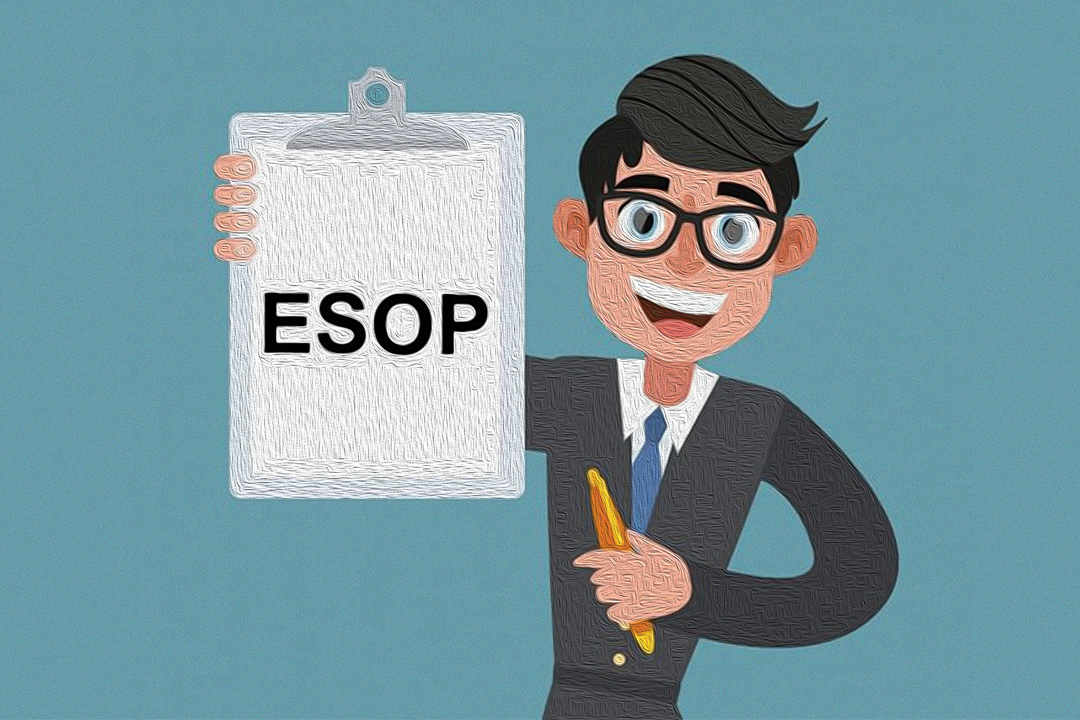
Employee Share Ownership Plan (ESOP) is a scheme that companies deploy to enable their employees to participate in the ownership of the company by way of share acquisition. ESOPs are designed to provide investment opportunity, sharing of benefits, incentive or non-monitory compensation for the employees. ESOPs are voluntary schemes adopted by companies and is not a mandatory requirement under the laws of Nepal. One of the first ESOPs is believed to have been adopted in 1956 by founders of Peninsula Newspapers, Inc who in their 80s wanted to give succession of their business to the employees. Modern-day service and tech-oriented companies that employ highly qualified professionals also view ESOPs as an alternative to the traditional collective bargaining schemes that were born during the industrial revolution and ensures that the employees’ involvement is more participative and aligned with the interest of the business. Likewise, startups that frequently face budget restraints use ESOPs to attract and retain talent. Lately India has witnessed record ESOPs in tech and startup industries.
In February 2021, fintech startup PhonePe issued ESOPs worth $200 million to its 2,200 employees to encourage collaboration, long-term focus and organisation-first thinking. Flipkart created an ESOP of $2.6 billion crore in December 2021 making it the largest ESOP pool size ever made by an Indian tech company. Chinese telecom company Huawei that is owned approximately 99% by its employees considers employee ownership instrumental for its rapid growth into becoming a telecom giant. It is not just the companies that benefit from ESOPs; a sense of ownership that ESOPs offer to employees increases productivity, loyalty, commitment, job security and satisfaction for the employees. ESOPs in various Silicon Valley companies have been successful in making their workers millionaires. Paytm, an Indian fin tech startup founded in 2010 has set another example by creating a net worth of at least 10 million Indian rupees each for its 350 ESOP holders after its IPO in November 2021. In 2021 alone, Indian startups set records after buying back ESOP shares from their employees by paying them a total of $440 million. ESOPs can be tailored to fit the needs of any business and Nepali law provides a lot of flexibility for companies to structure ESOP terms and conditions. One of the first policy issues for companies to consider is the eligibility criteria to participate in an ESOP. The eligibility can be linked to the years of service, performance milestones, position level, type of employment, etc.
The second key issue can be on how many shares will be issued and the pricing. Unlisted companies in Nepal are free to decide how many shares from their capital will be allocated to the ESOP. Publicly listed companies, on the other hand, can only issue a maximum of 5% of the total shares allotted to the public under an ESOP. The pricing of ESOP shares also becomes a fundamental matter. When offered as an investment opportunity, employees are usually required to make payment based on the prevailing valuation of the company. Companies that devise ESOP as an incentive plan offer shares to employees at a discounted price or even as a non-monitory compensation/bonus. ESOP shares can also be issued by way of payroll deduction rather than requiring employees to put in more money. When an ESOP requires employees to make payment, companies can also provide ESOP acquisition loan to its employees. This ESOP acquisition loan is an exception to the general prohibition on companies prescribed by the law to provide financing for purchase of its own shares. Companies are free to issue ESOP shares to as many employees as they want. The holders of ESOP shares will not be counted as shareholders even though they can be given rights and privileges similar to other shareholders. As a result, even though a private company can only have a maximum of 101 shareholders, it can additionally have holders of ESOP shares. ESOP shares may or may not have voting rights. Voting rights allow employees to participate in the decision-making process and elect directors.
However, an increased level of administration from the company may be required to facilitate the voting rights depending on the number of employees. As a matter of process, companies usually sign ESOP agreements with employees once they become eligible to participate in the ESOP. This agreement will set out the terms and conditions and create contractually enforceable rights and obligations on parts of both the company and employee. ESOP agreements will grant the employees share options and a right to convert the share options after a certain time period – also known as ‘vesting period’. Employees will need to pay the purchase consideration also known as ‘exercise price’ (if required) at the end of the vesting period. Other policy issues that companies will need to consider is whether there will be any lock-in period whereby the employees will be barred from transferring their shares for a certain time and who can they transfer the shares to. ESOP holder in public listed companies in Nepal cannot transfer their shares for at least three years from the date of issuance. The law requires ESOP holders to obtain approval from the board of directors before selling the ESOP shares. If the idea is to ensure that ESOP shares are only held by employees that are working in the company, the company has the option of buying back the ESOP shares of departing employees. A well formulated ESOP can be a gateway for companies to hire and retain the talent needed for its growth as well as to enhance employee and company performance.
*This article only intends to provide a general guide to ESOPs. It is important to consult a specialist while formulating such a policy.
READ ALSO:






